Workers Stood on the Necks of Panicked Sheep
The eyewitness saw cruelty in every one of the 25 English farms visited by two shearing contractors. When the sheep panicked while they were being pinned down, the shearers stomped and stood on their heads and necks, squeezed their throats, and kicked them in the stomach. They threw the defenseless and fearful animals around, twisted their necks and limbs, and slammed their heads and bodies into the hard wooden floors.
Shearers also violently punched these gentle animals in the face and beat and jabbed them in the head with clippers.
Clive Phillips, professor of animal welfare at the University of Queensland, says:
“Throwing sheep from a significant height … when they are in a state of extreme distress is likely to result in injury to the sheep, broken limbs, neck etc. … Such an experience undoubtedly constitutes suffering on the part of the sheep. [These actions were] deliberately inflicted and lasted for more than just a short period of time. “
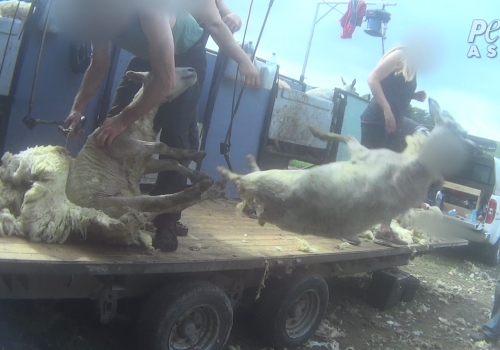
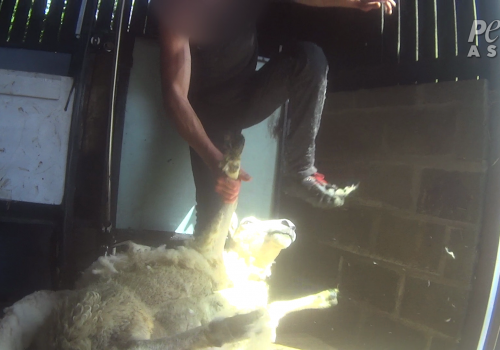
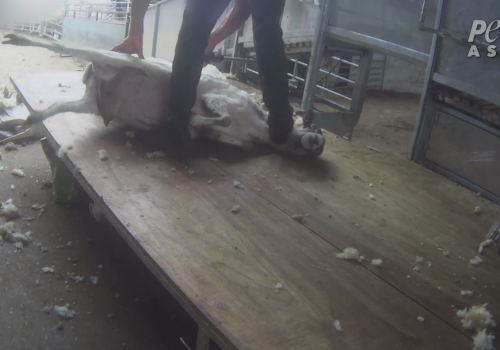
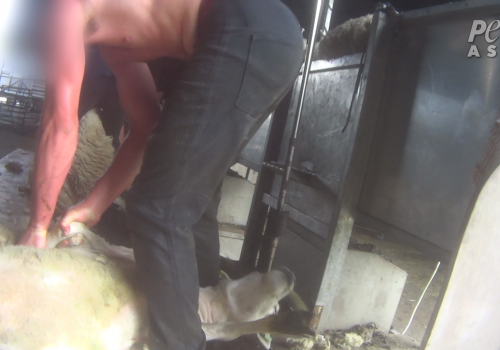
Gaping Wounds Sewed up Without Pain Relief
Workers didn’t give sheep any pain relief before piercing their flesh with a needle—which the eyewitness never saw being sterilized—and trying to sew up gaping, bloody wounds caused by rough shearing. Some animals were suffering from reported mastitis—a painful infection of the udder—prolapsed uteruses, and bloody hooves. The eyewitness never saw injured or sick sheep receive any veterinary care.
According to Donald Maurice Broom, professor of veterinary medicine at the University of Cambridge, sewing up a cut without any anesthesia and throwing sheep cause pain and suffering to the animals to a degree that is contrary to the recommendations for legal practice by the World Organisation for Animal Health and other international bodies. These actions are illegal in most countries.
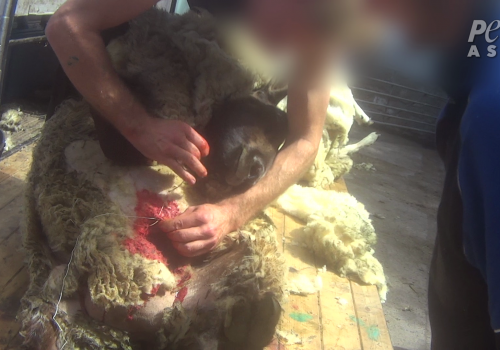
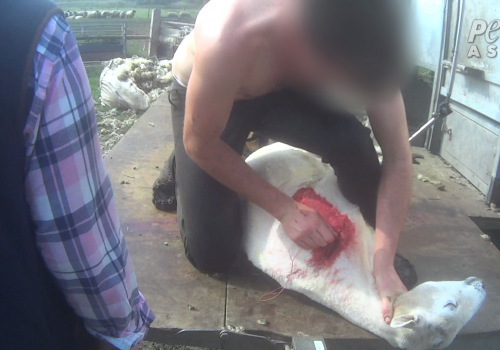
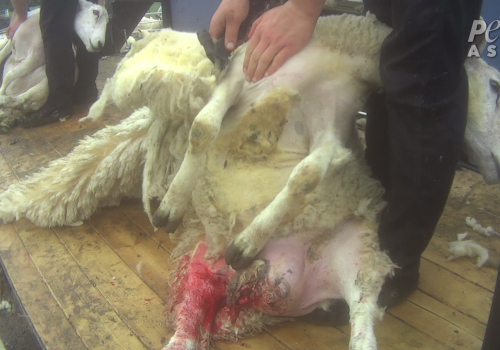
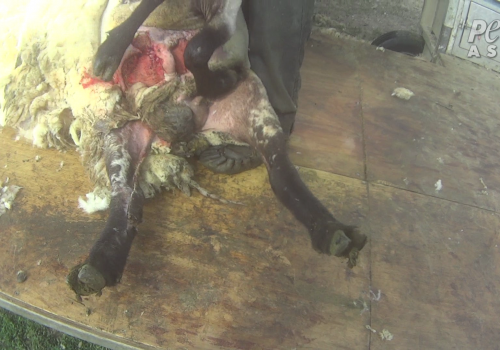
Sheep Left to Die
A farmer dragged two sheep who were unable to walk into a shed and left them without veterinary care. They eventually died. Several more died of a condition that a farmer called a “heart attack” during shearing.
Professor of Neuroscience and Animal Behaviour Lesley Rogers at the University of New England says,
“Sheep are a flocking species and it is known that they suffer by seeing other sheep suffer. It is very inhumane practice to simply let suffering sheep die without assistance.”
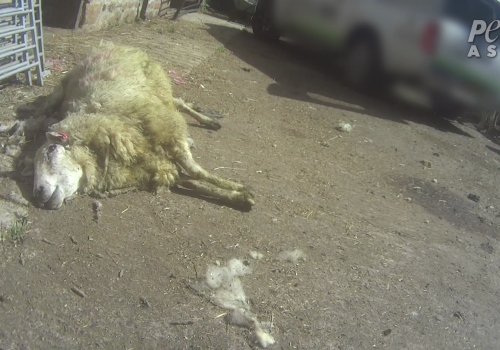
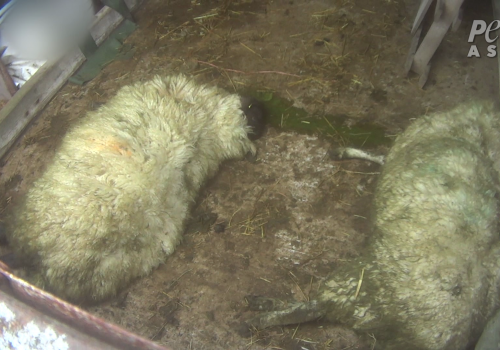
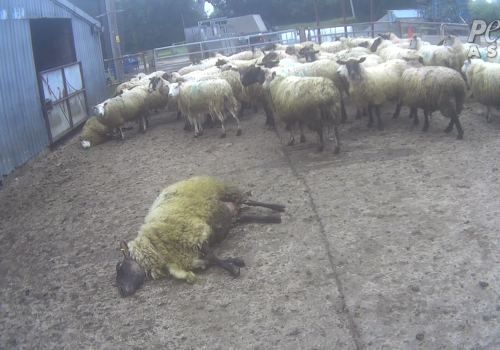
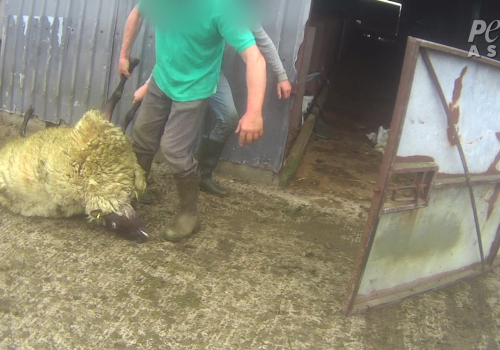
This Is Standard in the Wool Industry
PETA has already exposed systemic abuse in shearing sheds across Australia and South America. The best thing that you can do for sheep is refuse to buy their wool, which has been violently stolen from them. Simply check the labels on clothing and other items, and if the tag says “wool,” leave it on the shelf and look for something that isn’t made from animals’ hair or other parts of their bodies.
